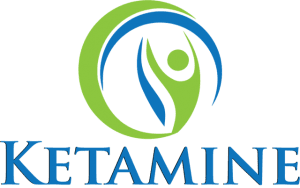Ketamine Depression Treatment Cost: Top 6 Affordable Options
When considering solutions for mental health struggles, the ketamine depression treatment cost is a hot topic. For some, it represents a guide of hope in overcoming treatment-resistant conditions like depression and anxiety. Mental disorders often defy easy solutions, leaving many frustrated with slow-progressing and less effective treatments. That’s where ketamine therapy shines, offering rapid relief for more than 70% of patients who have not found success with traditional antidepressants.
- Ketamine depression treatment cost ranges from $400 to $800 per session.
- Typically, an initial series involves around six treatments.
- Costs can vary significantly based on location and clinical setting.
Ketamine has garnered attention not only for its fast-acting effects but also for its emerging role in treating mental disorders that have withstood standard approaches. Although ketamine is not FDA-approved specifically for anxiety, its use in mental health care is growing, primarily for off-label purposes. This highlights the evolving landscape of mental health treatments and the ongoing research efforts to fully uncover ketamine’s potential.

Handy ketamine depression treatment cost terms:
Ketamine Depression Treatment Cost
Understanding the ketamine depression treatment cost can help you decide if it’s the right option for you. Ketamine infusions for depression typically cost between $400 and $800 per session. This range depends on factors like the clinic’s location, the expertise of the practitioners, and the specific needs of the patient.
Most clinics recommend starting with a series of six treatments over two to three weeks. This initial phase is crucial for achieving the best results. The total cost for this series can range from $2,400 to $4,800, which might seem steep but is often considered a worthwhile investment by those who have experienced significant relief from their symptoms.

Because ketamine is not yet FDA-approved for depression, insurance typically doesn’t cover these treatments. However, many clinics offer payment plans to make the cost more manageable. These plans allow patients to spread the total cost over several months, reducing the immediate financial burden.
Some clinics also collaborate with healthcare credit companies to provide financing options at lower interest rates. This can be particularly helpful for those who need immediate treatment but are concerned about upfront costs.
When exploring ketamine treatment, it’s important to consider not just the price but also the potential benefits. Many patients report rapid improvements in their symptoms, making the investment in ketamine therapy a valuable option for those with treatment-resistant depression.
Factors Influencing Ketamine Treatment Costs
When considering ketamine therapy, several factors can affect the overall cost. Understanding these can help you make a more informed decision about your treatment options.
Location
The location of the clinic plays a significant role in determining treatment costs. Clinics in urban areas or regions with higher living expenses tend to charge more. For example, a clinic in New York City might have higher prices compared to one in a smaller town.
Clinic
The clinic itself also influences pricing. Clinics with a strong reputation, advanced facilities, and experienced practitioners may charge more for their services. It’s important to weigh the cost against the quality of care you will receive.
Treatment Type
The type of ketamine treatment you choose can affect the price. Intravenous infusions are common and usually cost between $400 and $800 per session for depression. Intranasal esketamine or oral ketamine might have different pricing structures, potentially offering cost savings or added convenience.
Insurance Coverage
Currently, ketamine treatment for depression is not FDA-approved, which means most insurance plans do not cover it. This lack of coverage can lead to higher out-of-pocket expenses. However, some clinics have insurance experts who can help you understand any potential reimbursements or assist with claims.
Exploring these factors will give you a clearer picture of what to expect in terms of costs and help you choose a treatment plan that fits your budget and needs.
In the next section, we’ll look at the different ketamine treatment options available and how they compare in terms of cost and effectiveness.
Comparing Ketamine Treatment Options
When it comes to choosing a ketamine treatment for depression, you have several options. Each method has its own benefits and costs. Here’s a look at intravenous ketamine, intranasal esketamine, and oral ketamine.
Intravenous Ketamine
Intravenous (IV) ketamine is one of the most common and effective methods for treating depression. It involves delivering ketamine directly into the bloodstream through an IV drip. This ensures the medication acts quickly and allows for precise dosing.
- Cost: Generally ranges from $400 to $800 per session.
- Duration: Each session lasts about 40 minutes, and a typical treatment course includes six infusions over two to three weeks.
- Effectiveness: Known for rapid relief of depression symptoms, often within hours.
Intranasal Esketamine
Intranasal esketamine is a more recent option and involves a nasal spray version of ketamine. It’s FDA-approved for treatment-resistant depression and is typically used alongside oral antidepressants.
- Convenience: Patients can self-administer the spray in a certified clinic under medical supervision.
- Monitoring: Patients are observed for at least two hours post-treatment to manage any side effects.
- Cost: Pricing may vary, but it offers a non-invasive alternative to IV infusions.
Oral Ketamine
Oral ketamine is another method, often used as a supplementary treatment. It comes in tablet form and is taken under the tongue to be absorbed into the bloodstream.
- Use: Typically prescribed for use at home between other treatments like IV or intranasal to maintain symptom relief.
- Cost and Availability: Prices can differ widely, and it’s less common than the other methods.
Comparing the Options
Choosing between these options depends on your personal needs and circumstances. IV infusions offer quick relief and precise control. Intranasal esketamine provides convenience and is less invasive. Oral ketamine is a flexible option for ongoing management.

In the next section, we will explore the role of insurance in ketamine treatment and how it affects your out-of-pocket costs.
Insurance and Ketamine Treatment
Understanding how insurance works with ketamine treatment can be tricky. But getting a handle on this can save you a lot of money.
Insurance Coverage
Insurance coverage for ketamine treatment varies widely. Some insurance companies cover part of the cost, while others might not cover it at all. It’s crucial to check with your insurance provider to see if they include ketamine therapy in their plan.
Many clinics have in-house insurance experts. They can help you navigate your benefits, explain pre-authorization requirements, and assist with claims. This can be a huge relief if you’re unsure about how to proceed.
MassHealth and Other Options
If you’re in Massachusetts, MassHealth might cover some of the costs. However, coverage can depend on the specific type of treatment and your individual plan. It’s best to contact MassHealth directly or speak with a clinic’s insurance expert to understand what is covered.
If you don’t have insurance or your plan doesn’t cover ketamine treatment, don’t lose hope. Clinics often offer payment plans to spread the cost over time. Some also partner with healthcare credit companies that provide financing at low-interest rates. This can make the treatment more affordable.
Payment Options
Aside from insurance, there are other payment options to consider:
- In-House Payment Plans: Many clinics allow you to break down the total treatment cost into smaller, manageable payments over several months.
- Healthcare Credit Companies: These companies offer loans specifically for medical treatments, often with low-interest rates.
- Community Resources: Local mental health support groups and organizations sometimes provide recommendations for clinics that offer affordable treatment options.
Navigating the ketamine depression treatment cost can feel overwhelming. But with the right information and resources, you can find a plan that works for you.
In the next section, we will answer some of the most frequently asked questions about ketamine treatment costs, including whether insurance covers ketamine infusions and the typical cost per session.
Frequently Asked Questions about Ketamine Treatment Costs
Is ketamine infusion covered by insurance?
Insurance coverage for ketamine infusions can be a bit of a mixed bag. Most insurance plans do not cover ketamine treatments because the FDA has not yet approved ketamine for mental health disorders like depression. This means patients often need to pay out-of-pocket for these treatments.
However, some clinics offer assistance with insurance claims. They have in-house experts who can help you understand your benefits and guide you through the process of seeking potential reimbursement. It’s always a good idea to check with your insurance provider directly to see if they offer any coverage or if they might consider it on a case-by-case basis.
How much does ketamine therapy cost?
The cost of ketamine therapy can vary widely. For depression, ketamine IV infusions typically range from $400 to $800 per session. Most patients undergo a series of 6 treatments over 2-3 weeks, making the total cost range from $2,400 to $4,800.
Some clinics may require upfront payment for the entire series, while others offer payment plans to make the cost more manageable. It’s important to contact clinics directly to get a clear understanding of their pricing and payment options.
Are there at-home ketamine treatment options?
At-home ketamine treatment options are becoming more popular, especially for patients in places like Massachusetts. These options often involve ketamine in forms like nasal sprays or oral tablets, which can be administered outside of a clinical setting.
However, even at-home treatments should be done under the guidance of a healthcare professional to ensure safety and effectiveness. Clinics may offer telehealth consultations to monitor patients remotely.
It’s crucial to discuss these options with a healthcare provider to determine if they’re suitable for your needs and to ensure you’re using them safely.
Conclusion
Ketamine treatment accessibility is a significant concern for many seeking relief from depression. The high costs and limited insurance coverage can make these treatments seem out of reach. However, there are ways to steer these challenges. Some clinics offer payment plans to help spread the cost over several months, making it more manageable for patients. Additionally, exploring different treatment options, such as at-home ketamine therapies, might provide more affordable alternatives.
Looking ahead, there is hope that future insurance changes could make ketamine treatments more accessible. As research continues to demonstrate the effectiveness of ketamine for depression, insurance companies may start to reconsider their coverage policies. This could lead to more widespread acceptance and financial support for ketamine therapy, making it easier for patients to afford the care they need.
For those interested in exploring ketamine treatment options, we offer a range of ketamine products, including crystals, powders, pills, and vials, available for discreet delivery. Explore our shop to take the first step towards relief.
Navigating ketamine treatment can be daunting, but understanding the costs and insurance landscape is crucial. By staying informed and exploring all available options, you can make ketamine therapy a viable part of your mental health journey.










